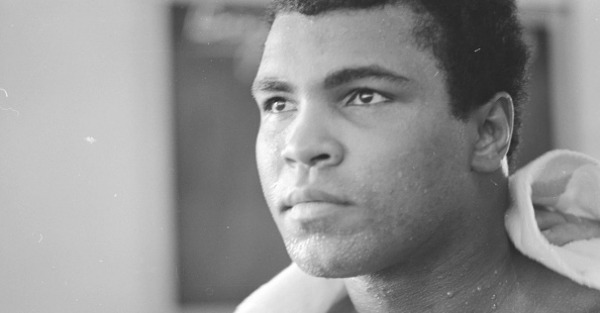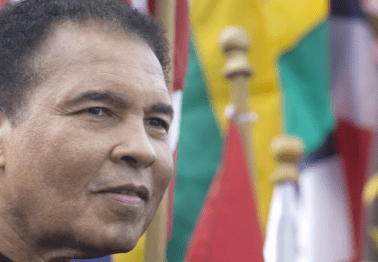Muhammad Ali, who went from a champion boxer to one of the world's most recognizable figures, has died at a hospital in Arizona. He was 74.
Ali was suffering from a respiratory illness, and his family, in a statement on Thursday, said he was expected to be in the hospital for a short time. Instead, All, who suffered from Parkinson's disease, lost the toughest fight of is life.
Several news organization broke in just after midnight to announce the news
Ali was born Cassius Marcellus Clay on Jan. 17. 1942 in Louisville, KY. Ali got into boxing seemingly by accident. After his bike was stolen, Ali told a police he wanted to beat up the thief. The officer, Joe Martin, told the 12-year-old Ali that if he wanted to beat someone up, he needed to know how to box. Martin worked with young boxers at a local gym and took Ali under his wing.
From there it was history. Ali won a Golden Gloves tournament in 1956, and the Olympic gold medal in 1960 in the light heavyweight division. In those games, he gave the boxing world a glimpse of that was to come —- a tall (6-foot-three) fighter with unusual speed. Just four years later, Ali pulled off one of the greatest upsets (at the time) in boxing history, knocking out Sonny Liston, a fighter some feared many thought he couldn't be beat. He beat Liston in the ring, but also out of it. The "Louisville Lip" was in top form, taunting Liston before the fight and composing one of his most famous poems, one that depicted him beating the "Big Bear," as Liston was called.
But the next several years brought controversy. First, Ali converted to the Nation of Islam in 1964, and was sentenced to five years in prison in 1967 for refusing to serve in the Vietnam War. He was also banned from boxing for three years. He remained free on appeal, and returned to the ring in 1970, beating Jerry Quarry, The Supreme Court overturned his sentence, in 1971.
From then, Ali commanded the boxing landscape. After losing to Joe Frazier in 1971 —- the fight of the century —- he beat another fighter thought to be invincible, George Foreman. Also went on to face Frazier twice more, including the Thrilla in Manilla in 1975. That fight was so brutal that Frazier's corner threw in the towel, and Ali famously said: "It was like death. Closest thing to dyin' that I know of,"
The boxing writer for the Associated Press, Ed Schuyler Jr, would say: "Ali took terrible punishment. In the sixth round he hit him with a hook that almost made it look like his head was on a swivel. Joe just wouldn't stop."
Ali should have stopped after that fight, but he fought on for another six years, He lost three of his last four fights and was well past his prime but he hung up the gloves just before his 40th birthday. He finished 56-5 with 37 KOs.
Ali spent his retirement working on philanthropic causes. including the Muhammad Ali Parkinson Center in Phoenix. Ali was diagnosed with Parkison's disease, a degenerative neurological condition, in 1984. Doctor's said the Parkinson's was the results of the brain injuries he suffered in the boxing ring.
In 2005, he was awarded the Presidential Medal of Freedom, and that same year, he opened the Muhammad Ali Center in his hometown of Louisville, Kentucky.
Through all of hit accomplishments, controversy and brashness, it as easy to overlook how thoughtful and introspective Ali could be. This may be the best example of that:
That was, in a word, beautiful.
Ali had been hospitalized at least twice in 2015, first for a severe urinary tract infection and then for a respiratory issue.
Ali is survived by his wife, Yolanda, to whom he has been married since 1986. Ali has several children from his relationships, including his daughter, the former women's boxing champion Laila Ali.
"Don't count the days; make every day count," Ali once said.
He certainly did that. Rest in peace.
(h/t Biography.com, ESPN.com, Parade.com, LATimes)

